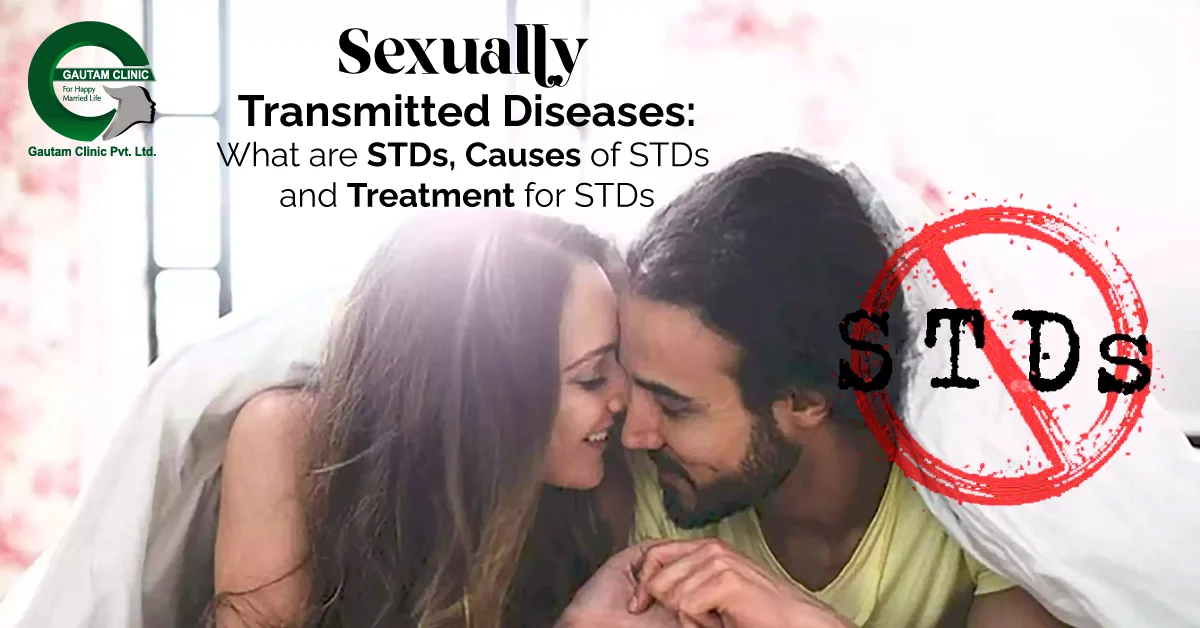9873911911 Estd. 1999
+91 9873911911 Estb. 1999

Sexually transmitted infections (STIs) are a pejorative term for what both men and women consider to be unpleasant infections.
According to the World Health Organization, approximately 1 million people contract a sexually transmitted disease daily. Among the top five health issues, sexually transmitted diseases (STDs) significantly affect women’s reproductive and sexual health.
Three main factors can bring on STDs/STIs:
Some STIs can also be transmitted by oral sex and other sexual activities, including sexual intercourse. It is possible to spread an STI from one person to another without ejaculating
Sharing infected needles can also spread HIV, hepatitis B, or hepatitis C, like those used for injecting drugs, tattooing, or contaminated body piercing equipment. Some diseases can spread sexually but can also be passed along nonsexually in certain circumstances. Although CMV is not considered an STI, it can be transmitted through sexual contact
Most of the time, the person infected with an STD does not experience any symptoms. As a result, even with mild symptoms, it may not be possible to determine that the illness is transmitted through sexual contact.
Chlamydia, HIV, gonorrhea, and HPV are some of the sexually transmitted diseases that have no symptoms.
As a result, they exhibit the following signs and symptoms:
Viral STI treatments, issues, and outcomes are all influenced by the virus (HIV, human papillomavirus, genital herpes, hepatitis, or cytomegalovirus). Most importantly, the symptoms and progression of these infections can be minimized with appropriate Sexual Health Treatment in Noida. Many medications exist to lessen the symptoms of genital herpes and the risk of the virus spreading to others.
Antiretroviral medications are required for HIV patients to keep their virus levels in check. HAART1 (highly active antiretroviral therapy) is a class of antiretroviral medications that have been shown to extend patients’ lives, improve their health, and reduce the spread of HIV to others. Pregnant women who take these drugs can reduce the risk of their fetus or newborn developing HIV.
Treatments for sexually transmitted infections (STIs) can be found in general on the internet. You can learn more about STI treatment options by visiting the CDC’s website.
Pregnant women should be tested for sexually transmitted infections (STIs) because some can be transmitted during pregnancy or delivery. A healthy baby’s birth can only be ensured if pregnant women detect these STIs early enough. Different treatments are needed depending on the type of STI.
Infected individuals and their partners must take the prescribed medication to ensure that their STI is wholly eliminated, regardless of how quickly their symptoms begin to improve. They should also follow the advice of Ayurvedic Sexologist in India on how long they should postpone having intercourse after the therapy is finished to prevent the spread of the disease.
The best way to avoid a sexually transmitted disease (STI) is to prevent STIs. And avoiding sexual contact is the only surefire way to do so.
Sex can, however, be made safer and less likely to result in STIs by following these tips:
One of the most common sexually transmitted diseases, STDs, affects both men and women. Depending on the underlying cause, various treatment options for sexually transmitted diseases exist. Preventive measures are as necessary as treatment in preventing disease recurrence and persistence. For any sexual disease you can visit Gautam Clinic.
Our Locations
Ayurvedic Sexologist in Gurgaon | Sexologist in Laxmi Nagar | Sexologist in Faridabad